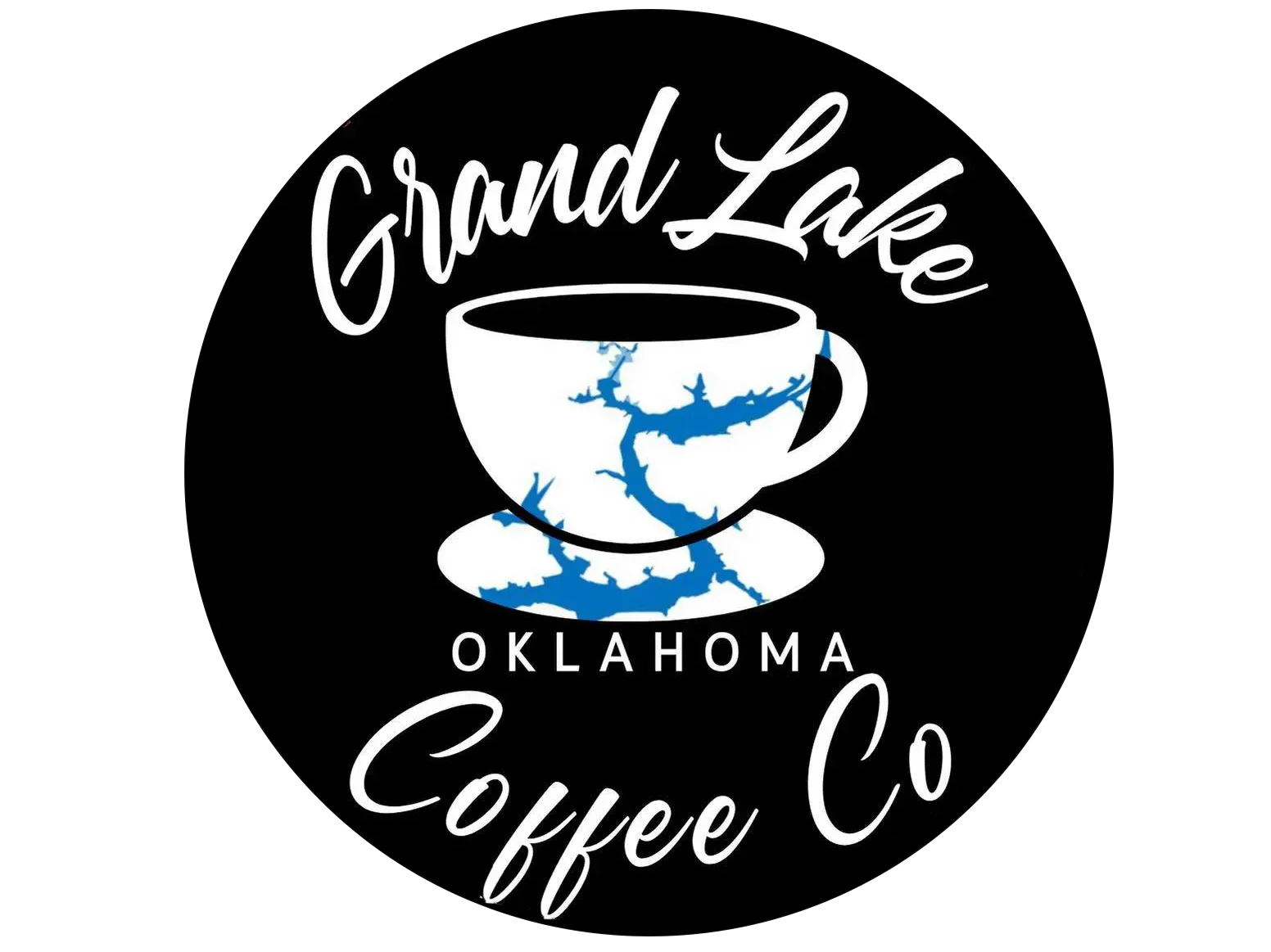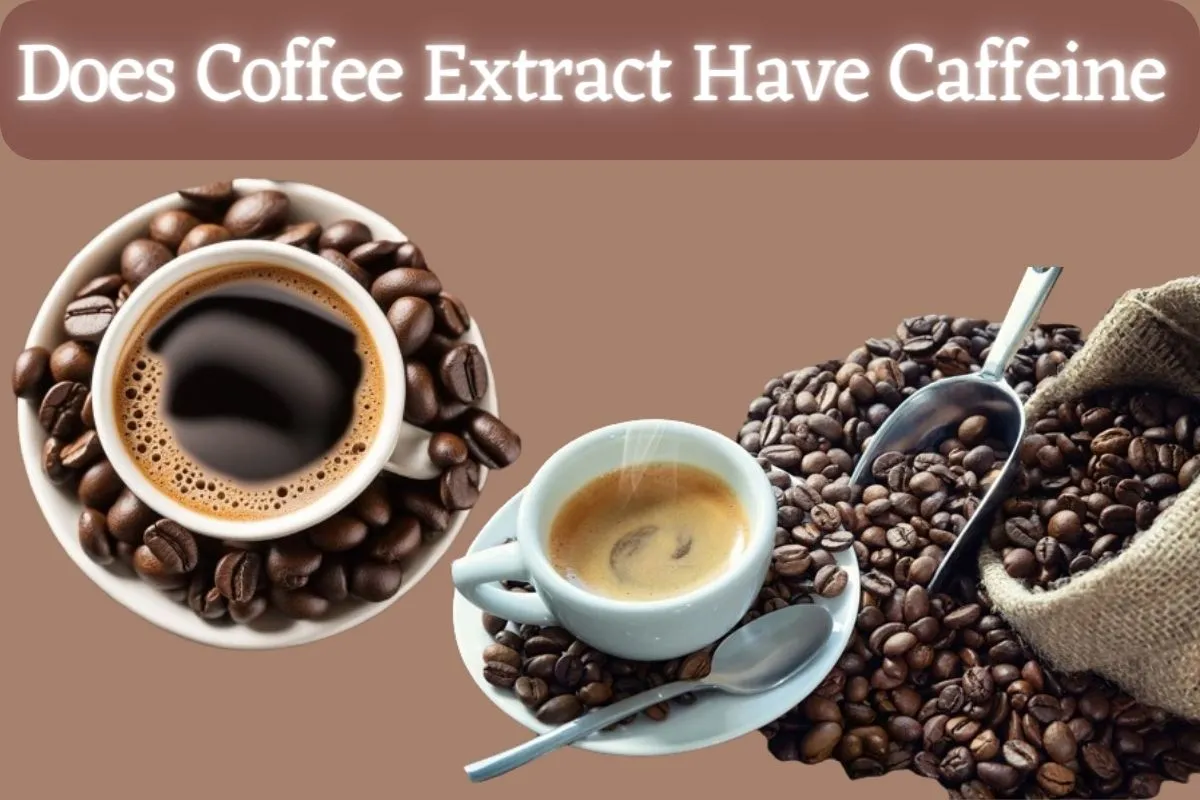Did you know coffee didn’t always come in the dark, roasted form we know and love? For centuries, people enjoyed brews made from unroasted, green coffee beans. While less common today, this practice highlights a key point: coffee extract, that convenient flavoring for cakes and ice cream, gets its essence from the same source as your morning cup of joe.
This begs the question, does coffee extract have caffeine? Let’s dive in and discover Does Coffee Extract Have Caffeine?
Importance of Knowing Caffeine Content in Coffee Extract
Understanding the caffeine content in coffee extract is important because it’s a surprisingly widely used ingredient. From home bakers adding a dash to chocolate chip cookies to major ice cream brands relying on it for their coffee-flavored creations, coffee extract finds its way into a range of foods.
The benefits of using coffee extract center around convenience and flavor. You get the deep richness of coffee without needing to brew a pot.
There’s a common misconception that coffee extract is either caffeine-free or contains an extremely high caffeine dose. The truth lies somewhere in between. Factors like the type of coffee bean used (Robusta vs. Arabica), the extraction process, and the concentration level all impact its caffeine content.
Individuals who are sensitive to caffeine, pregnant or breastfeeding women, and those with certain medical conditions may want to exercise caution or avoid coffee extract altogether. Consulting a doctor about caffeine intake is the safest approach if you have any concerns.
Does Coffee Extract Have Caffeine?
Yes, coffee extract is not caffeine-free. It contains caffeine, with the amount varying depending on the type of coffee bean used and the method of extraction. On average, coffee extract contains between 1-2% caffeine by weight, but some extracts can contain up to twice the amount of caffeine as regular coffee
The caffeine content can vary based on several factors. These factors include the type of coffee beans used, the botanical species of coffee used, the altitude at which the beans were cultivated, the roasting process, and the brewing method.
The botanical species of coffee used is a significant factor in determining the caffeine content. Arabica beans typically contain 1-2% caffeine by weight, while Robusta beans contain 2-4% caffeine by weight. Therefore, coffee extract made from Robusta beans will have a higher caffeine content than coffee extract made from Arabica beans.
The altitude at which the beans were cultivated also affects the caffeine content. Coffee plants develop caffeine as a defense mechanism against insects and diseases. The higher the altitude, the less risk there is of mold and parasites, and therefore, the lower the caffeine content.
The roasting process can also affect the caffeine content. While roasting increases the caffeine content relative to the bean’s final weight, it slightly reduces the caffeine content in the final phase of the roasting process due to pyrolysis, where the coffee begins to burn itself.
The brewing method is another factor that affects the caffeine content. Brewing methods with a higher level of extraction, such as full immersion brewing methods, produce coffee with higher caffeine content. Brewing with hotter water, using a smaller grind size, and brewing for a longer time can also increase the caffeine content.
Coffee Extract Variants and their Caffeine Content
There are several types of coffee extracts, each with its unique characteristics and uses. Here are some of the common types of coffee extracts:
Cold Brew Coffee Concentrate:
This is a special concentrate made by steeping roasted coffee beans in cold water for an extended period, typically 12-24 hours. Cold brew coffee concentrate is known for its smooth and mild flavor, low acidity, and high caffeine content. It is often used as a base for iced coffee, cocktails, and other cold beverages. Cold brew coffee concentrate contains around 200-300 mg of caffeine per 8 oz serving.
Iced Coffee Concentrate:
Similar to cold brew coffee concentrate, iced coffee concentrate is made by brewing hot coffee and then cooling it down. It is then concentrated by removing some of the water. The iced coffee concentrate is often used as a base for iced coffee and other cold beverages. The caffeine content in Iced Coffee Concentrate can range from around 100 mg to 170 mg per serving, depending on the specific product and brand chosen.
Top Roast Coffee Concentrate:
This is a concentrate made by brewing coffee using a high-pressure extraction method, such as espresso. Top roast coffee concentrate is known for its robust flavor, high caffeine content, and thick consistency. It is often used as a base for hot coffee drinks, such as lattes and cappuccinos. The caffeine content in Top Roast Coffee Concentrate can range from around 50 mg to 150 mg per serving, depending on the specific product and brand chosen.
Coffee Essences:
Coffee essences are highly concentrated flavorings made by extracting the flavors and aromas of coffee beans using alcohol or other solvents. They are often used in baking, cooking, and other culinary applications to add a rich and complex coffee flavor. The caffeine content in coffee essences varies based on the type of coffee beans and the extraction process.
Green Coffee Extracts:
Green coffee extracts are made by extracting the flavors and compounds from unroasted coffee beans. They are often used in supplements and other health products due to their high antioxidant content and potential health benefits. One cup of green coffee contains about 20-50 mg of caffeine.
Read Also:
List Of Ingredients In Coffee Extract
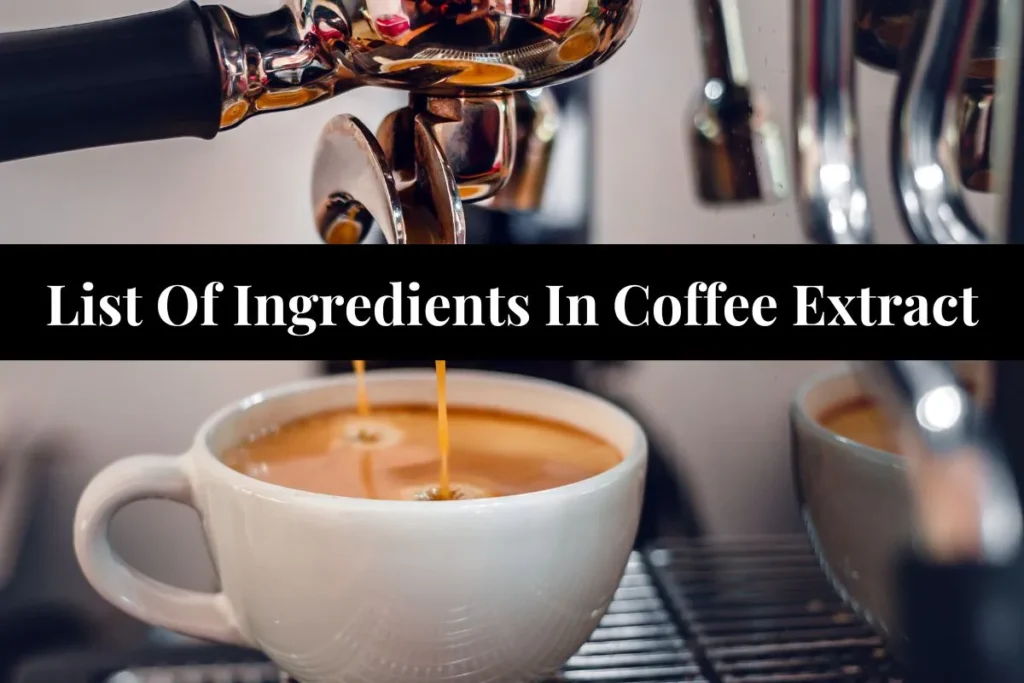
The ingredients in coffee extract typically include:
- Coffee Beans: The star of the show! The variety of coffee bean (Arabica, Robusta, etc.) and the roast level (light, medium, or dark) dramatically influence the final extract’s flavor profile. Light roasts offer brighter, more acidic notes, while dark roasts provide deeper, richer, and sometimes smoky flavors.
- Alcohol or Glycerin: The essential solvent used to pull the delicious flavors and caffeine from the beans.
- Vodka: The most common choice due to its neutral flavor, allowing the pure coffee essence to stand out.
- Other Spirits: Rum, bourbon, or brandy can infuse the extract with their own unique flavor characteristics, adding complexity and depth.
- Food-Grade Glycerin: A great non-alcoholic alternative. It creates a slightly sweeter and less intense extract compared to alcohol-based versions.
- Propylene Glycol: This solvent and carrier is often found in extracts meant for cosmetic use. It helps maintain consistency and ensures easy distribution of the coffee extract within skincare or beauty products.
- Water: Some manufacturers dilute the highly concentrated coffee extract with water. This creates a milder flavor profile and makes it easier to incorporate into recipes.
- Preservatives: Ingredients like potassium sorbate and sodium benzoate can be found in some commercial extracts. They are used to prevent spoilage and significantly increase shelf life.
Coffee Extract Nutritional Information
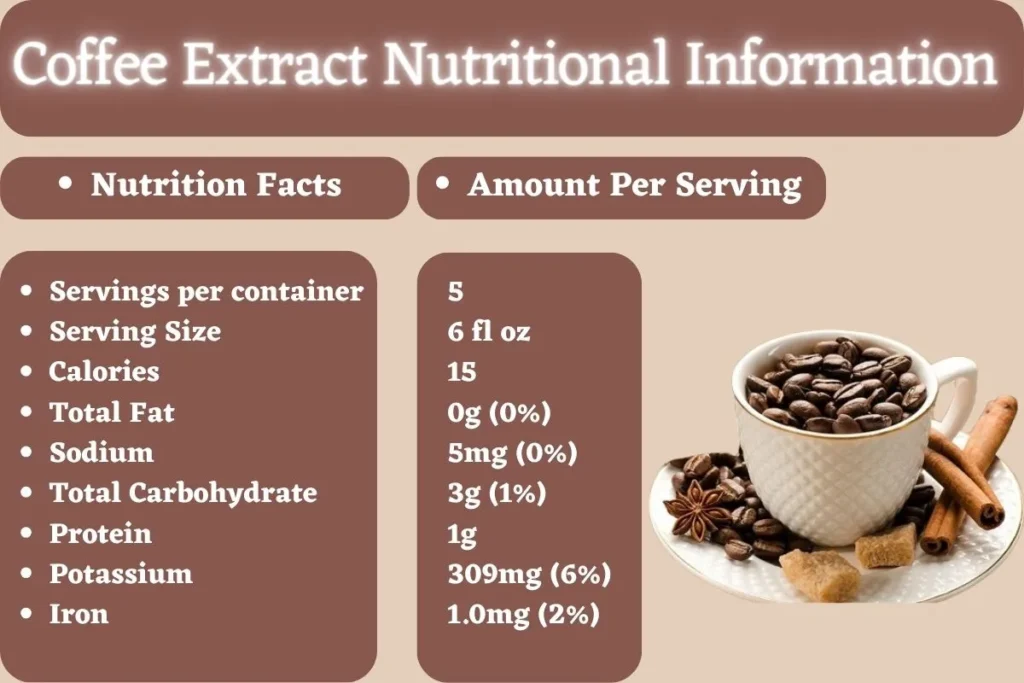
A single 6 fl oz serving of Dunkin’ Cold Brew Coffee Concentrate contains a modest 15 calories. It has no fat content (0g) and a very small amount of sodium (5mg). You’ll find 3g of carbohydrates and 1g of protein in each serving. The concentrate provides a boost of potassium, delivering 309mg (6% of the daily value), as well as a small amount of iron (1mg, or 2% of the daily value).
| Nutrition Facts | Amount Per Serving |
| Servings per container | 5 |
| Serving Size | 6 fl oz |
| Calories | 15 |
| Total Fat | 0g (0%) |
| Sodium | 5mg (0%) |
| Total Carbohydrate | 3g (1%) |
| Protein | 1g |
| Potassium | 309mg (6%) |
| Iron | 1.0mg (2%) |
Alternatives to Coffee Extract and their Caffeine Content
There are several alternatives to coffee extract that can provide a rich and robust flavor for desserts and beverages. These include:
Matcha Tea:
A finely powdered Japanese green tea with a vibrant green color and slightly grassy, vegetal flavor. Matcha offers a unique energy experience. It contains both caffeine (around 30-70mg per teaspoon) and L-theanine, an amino acid that promotes focus and relaxation without the jitters often associated with coffee. Choose matcha for a sustained, calm energy boost.
Black Tea:
A classic and versatile option with a wide variety of flavors depending on the type and origin of the tea leaves. Black teas boast a moderate caffeine kick (approximately 47 mg per cup) and can range from brisk and malty (Assam) to floral and delicate (Darjeeling). Enjoy black tea for its robust flavor and familiar caffeine boost.
Green Tea:
Known for its fresh, grassy flavor profile and potential health benefits, green tea contains less caffeine than black tea (approximately 28 mg per cup). It’s rich in antioxidants, which may have protective effects on the body. Opt for green tea when you want a lighter, gentler caffeine option and potential added health benefits.
Yerba Mate:
A South American beverage with a slightly bitter, earthy flavor and a moderate caffeine boost (around 80 mg per cup). Yerba mate is also packed with vitamins, minerals, and antioxidants. This traditional drink is a great choice for those looking for a stimulating lift with extra nutritional benefits.
Guayusa:
This caffeinated holly comes from the Amazon and is brewed into a tea with a smooth, subtly sweet flavor. It provides a caffeine content similar to green tea and offers clarity and focus without the jitters. Guayusa is a fantastic option if you’re looking for a gentle, balanced energy source and a unique taste.
Chicory Root:
Roasted and ground chicory root boasts a flavor reminiscent of coffee, with nutty, earthy, and slightly woody notes. It’s naturally caffeine-free and a great source of inulin, a prebiotic fiber that supports gut health. Try chicory root as a coffee alternative if you enjoy bold flavors and seek gut health benefits.
Dandy Blend:
This popular coffee substitute features a blend of roasted barley, rye, chicory root, dandelion root, and sometimes other ingredients like beetroot. It delivers a rich, dark flavor that mimics coffee without any caffeine. Dandy Blend is a convenient and satisfying option for replicating the coffee experience without the stimulating effects.
Rooibos Tea:
This South African herbal tea is known for its sweet, slightly fruity flavor and vibrant red hue. Rooibos is naturally caffeine-free and loaded with antioxidants. It’s a delicious and healthy choice for those looking for a flavorful, caffeine-free beverage.
Cacao:
Pure cacao provides a rich, chocolatey flavor and contains a small amount of theobromine, a mild stimulant similar in structure to caffeine. Enjoyed as hot cocoa or in desserts, cacao offers a hint of stimulation with a decadent and comforting flavor.
Herbal Teas:
The world of herbal teas is vast! Peppermint, chamomile, ginger, and countless other herbs can be steeped into caffeine-free beverages. Each offers unique flavors and potential health benefits (think digestion support, stress reduction, etc.). Explore herbal teas for a customized and calming hot beverage experience.
| Beverage | Caffeine Content |
| Matcha Tea | 30-70mg/tsp |
| Black Tea | 47mg/cup |
| Green Tea | 28mg/cup |
| Yerba Mate | 80mg/cup |
| Guayusa | 28mg/cup |
| Chicory Root | Caffeine-free |
| Dandy Blend | Caffeine-free |
| Rooibos Tea | Caffeine-free |
| Cacao | Small amount of theobromine |
| Herbal Teas | Caffeine-free |
READ ALSO:
Recommended Daily Intake of Coffee Extract
Coffee extracts pack a significant caffeine punch, so it’s important to be mindful of how much you consume compared to the Recommended Daily Intake (RDI) of 400mg for healthy adults.
Cold brew coffee concentrate is particularly potent, containing 200-300mg of caffeine in a single 8 oz serving, potentially reaching up to 75% of your RDI. Iced coffee concentrate generally has a slightly lower caffeine content, providing 100-170mg per serving (25-42.5% of the RDI).
Top Roast Coffee Concentrate offers a wider range of caffeine levels, from 50-150mg per serving (12.5%-37.5% of the RDI). Green coffee presents the most moderate option with 20-50mg per cup (5%-12.5% of the RDI).
It’s crucial to note that caffeine in coffee extracts can quickly add up. Always check product labels and consider portion sizes if you are tracking your caffeine consumption. Remember, individual sensitivities to caffeine vary, and pregnant or breastfeeding individuals and those with sensitivities should always discuss caffeine intake with their doctors.
Conclusion
Does Coffee Extract Have Caffeine? While coffee extract can be a flavorful and convenient way to add a coffee kick to recipes, it’s essential to be aware of its caffeine content. The concentration of caffeine in coffee extract can vary depending on the type of extract, the beans used, and the extraction process.
Consider the serving size, your individual caffeine tolerance, and check the label on your chosen extract to stay within your desired intake levels. If you’re looking for a delicious coffee flavor without the caffeine, exploring the many caffeine-free alternatives might be a great option for you.
Frequently Asked Questions
Q1. What is coffee extract?
Coffee extract is a concentrated liquid form of coffee. It’s created by steeping high-quality coffee beans in a solvent, typically alcohol or glycerin, which draws out the coffee’s flavor compounds and caffeine. The result is a potent and versatile ingredient with an intense coffee essence.
Q2. What is coffee extract used for?
Coffee extract has a wide range of culinary and even cosmetic uses. It’s primarily known for adding a rich coffee flavor to baked goods, ice cream, sauces, beverages, and more. In cosmetic products, it provides a source of antioxidants and a potential skin-tightening effect.
Q3. Is coffee extract still coffee?
Yes, coffee extract is still coffee, simply in a concentrated format. It maintains the essential flavor characteristics of the beans used in its creation, just in a much more potent form compared to a standard cup of brewed coffee.
Q4. How much caffeine is in Arabica coffee extract?
The caffeine content in Arabica coffee extract can vary depending on factors like the strength of the extract, the brewing method, and the amount used. However, as a general estimate, coffee extracts typically contain a significant amount of caffeine per serving. Consider checking labels for specific caffeine levels on commercial products.
Q5. Is coffee extract good for you?
Coffee extract offers some potential health benefits due to the antioxidants and other compounds found in coffee. However, since it’s concentrated, it’s important to be mindful of caffeine intake, as overconsumption can lead to negative effects. For those with caffeine sensitivities or health concerns, it’s wise to consult your doctor before incorporating coffee extract regularly into your diet.
Know More:
👉Does Latte Have Caffeine?
👉Does Starry Have Caffeine?
👉Does Fresca Have Caffeine?
👉Does Moringa Have Caffeine?
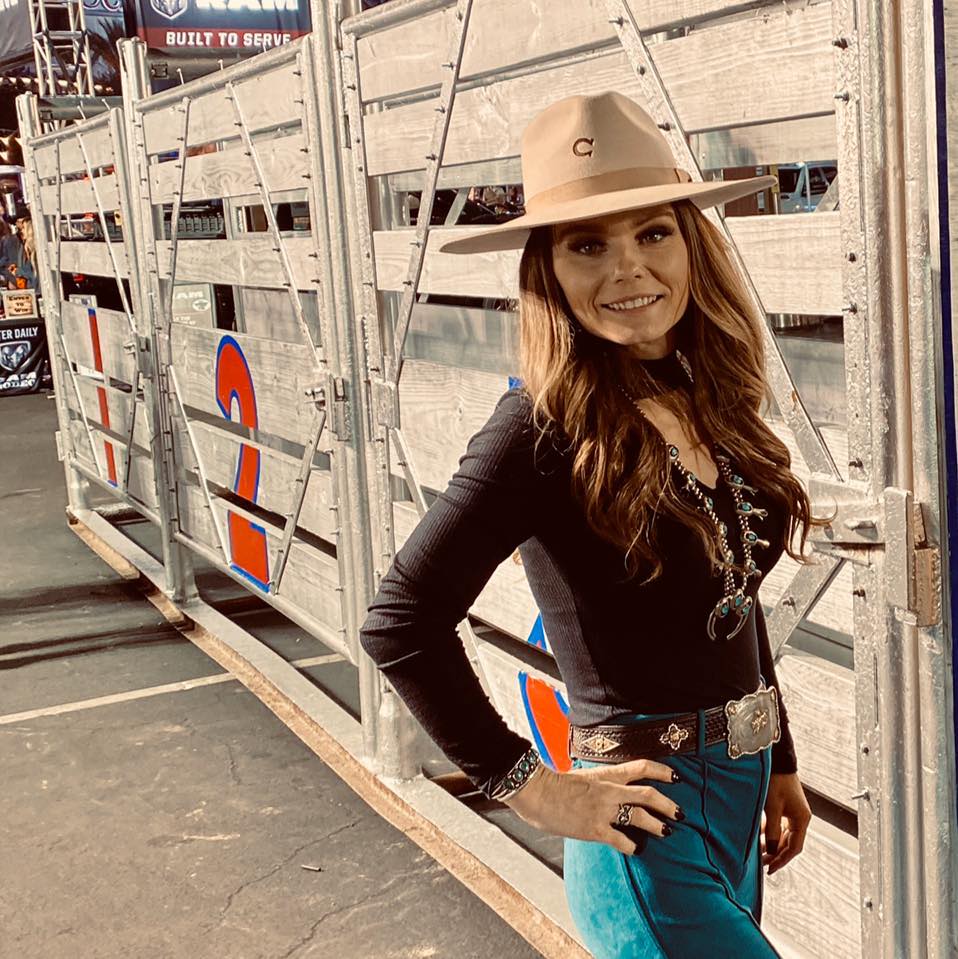
Rossi Glover, the passionate Owner of Grand Lake Coffee, infuses every cup with her love for coffee and dedication to quality. With an extensive background in the art and science of coffee, Rossi is not just a connoisseur but a storyteller, sharing the intricate tales behind each brew.
